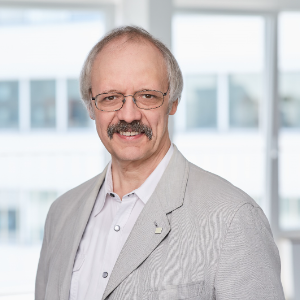Title : Use of MRI-navigated Transcranial Pulse Stimulation (TPS) as an alternative treatment for alzheimer’s disease and other psychiatric diseases
Abstract:
Dementia is still one of the most common serious psychiatric disorders in old age. A dementia of the Alzheimer's type is still considered to be a progressive irreversible disease which cannot be treated causally. However, in the meantime it has been shown that novel non-invasive brain stimulation methods offer alternative, effective treatment options to reduce the symptoms. Here, the method of transcranial pulse stimulation (TPS) with mechanotransduction of shock waves offers particularly favourable effects on various symptoms of dementia like memory, executive functions and mood, without showing significant side effects.
The transduction of the shock waves is carried out very precisely with a MRI-navigated system. This allows a precision very close to stereotactically implanted electrodes in Deep Brain Stimulation (DBS). Shockwaves can be administered to superficial brain structures as well as into deep brain areas, up to 8 cm in depth. In contrast to ultrasound stimulation (tFUS) TPS does not induce any thermal effects. So there is no risk of thermal lesion after administration of low intensity shock waves. On the contrary locally administered low-energy shock waves have been shown to induce regenerative processes in the central nervous system.
While the TPS procedure is already approved in Germany and several other countries with a CE-certificate, patients with depression and post-Covid-19 illness were treated in the context of healing attempts. In addition to positive effects on the brain and the behaviour of patients with Alzheimer's disease, results of using TPS in patients with severe therapy resistant depression and post-Covid syndrome will also be presented.
Characteristics and effects of TPS will be compared with alternative standard treatment such as ECT, magnetic stimulation, deep brain stimulation or stimulation with AC or DC currents.
To determine the exact working mechanisms of TPS further investigation is needed. In a rodent model it could be shown that TPS induced an increase of nitric oxide (NO)-levels. Both, the release of trophic factors and a temporarily opened blood-brain-barrier (BBB), seem to play a critical role. Thus a transient opening of the BBB might help to potentiate effects of administered pharmaceuticals contributing to an improvement of brain function.
In summary, TPS is a very promising option as an adjunctive therapy to a state-of-the-art treatment which may achieve a reduction of symptoms in Alzheimer’s disease, depressive symptoms as well as an improvement of symptoms in other psychiatric diseases.
Audience Take Away
- Presentation of a new effective method of non-invasive brain stimulation with very low side effects compared with other standard therapies
- Treatment data of patients with Alzheimer’s Disease and depression will be included
- Discussion of the working mechanism of TPS




